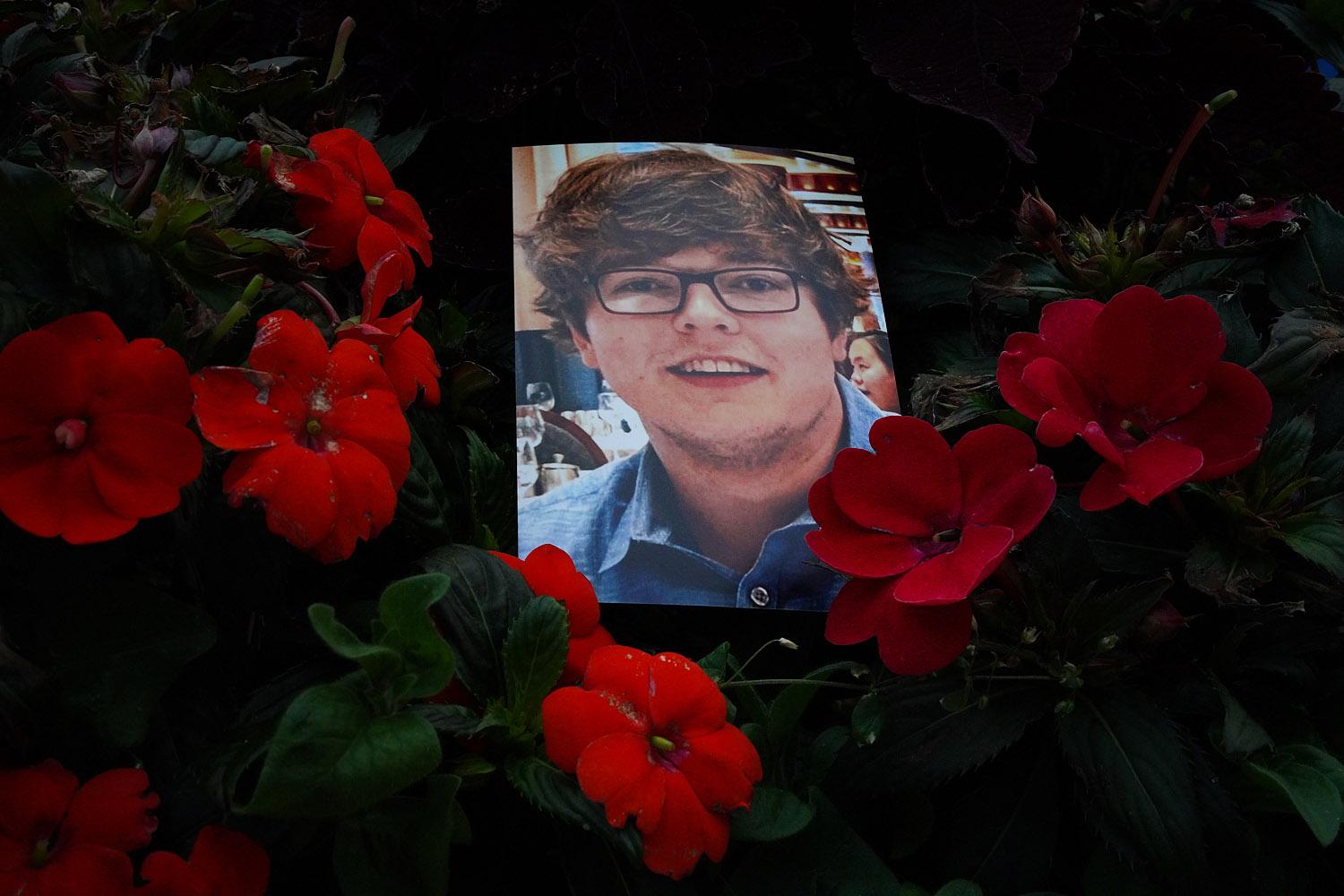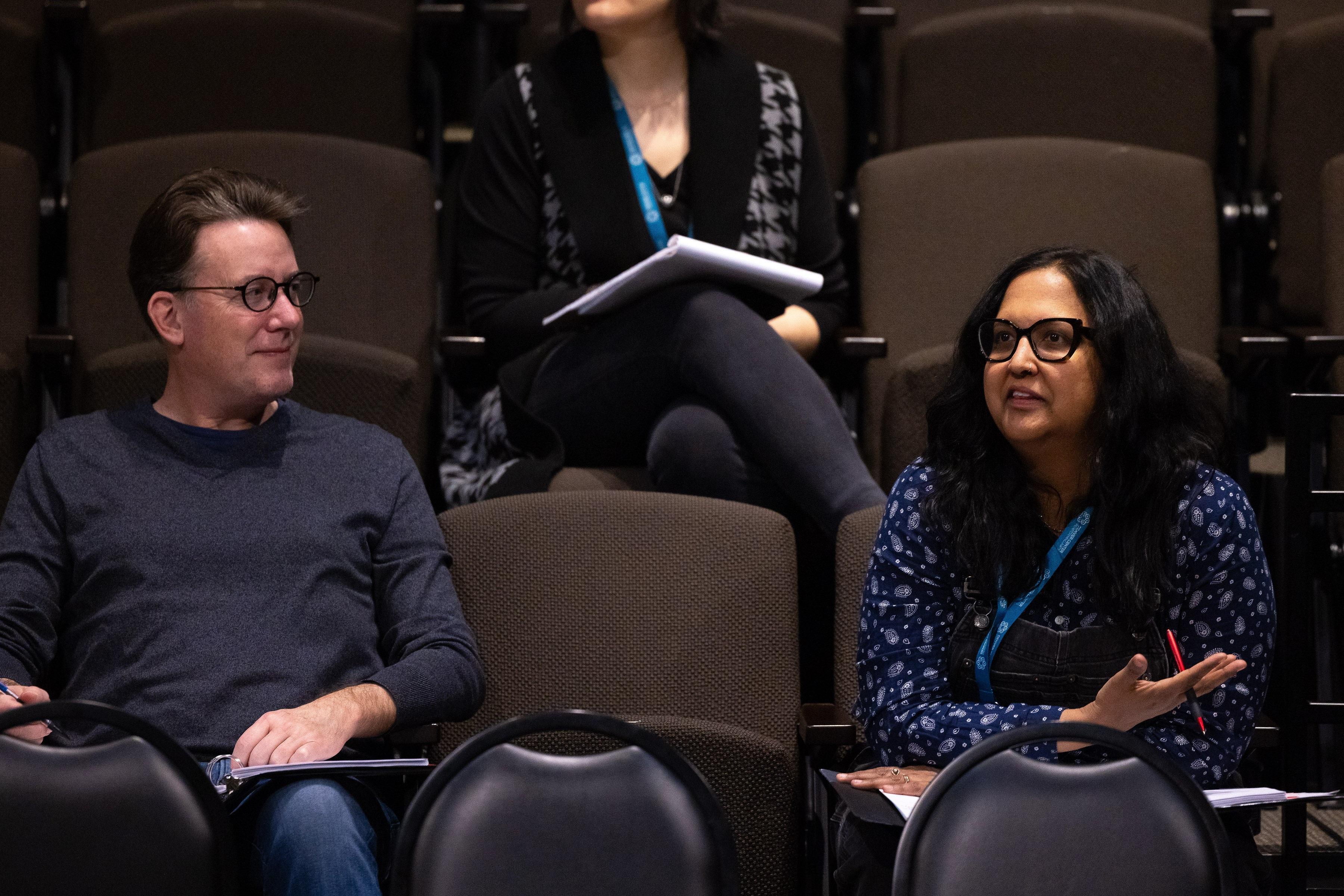
The Colorado New Play Summit is an annual event by the Denver Center Theater Company. Playwrights work with professional directors, actors, and dramaturgs to develop new plays. The weekend ends with staged readings for theater pros and theater fans. During the challenging development process, two new playwrights discovered a passion for writing and an emotional connection to their own stories.
Nina McConigley, an assistant professor, and Vauhini Vara, a visiting assistant professor, both work in the creative writing program at Colorado State University. And they discovered that they were both part of the same process. They realized that their plays both feature Indian American characters dealing with cancer and grief.
Nina McConigley wrote "Cowboys and East Indians" in 2013. Her high school classmate, Matthew Spangler, is the playwright who adapted "The Kite Runner" for Broadway. During a trip back to deliver a talk at the University of Wyoming, Spangler asked her if she thought of Cowboys and East Indians as a play. They embarked on the project together.
Vauhini Vara had written an essay called “Ghosts," which she describes as an ‘experimental essay’ partly written by her and partly produced by an AI algorithm. " In some ways, this is not dissimilar, but like in Nina's experience, this person reached out to me and said, ‘Have you ever thought of adapting this essay into a play?’” Vara said that idea excited her.
The likelihood of two South Asian playwrights from Fort Collins having works in the Colorado New Play Summit surprised Vara and McConigley. Both of these experienced writers stepped into the Colorado New Play Summit as first-time playwrights.
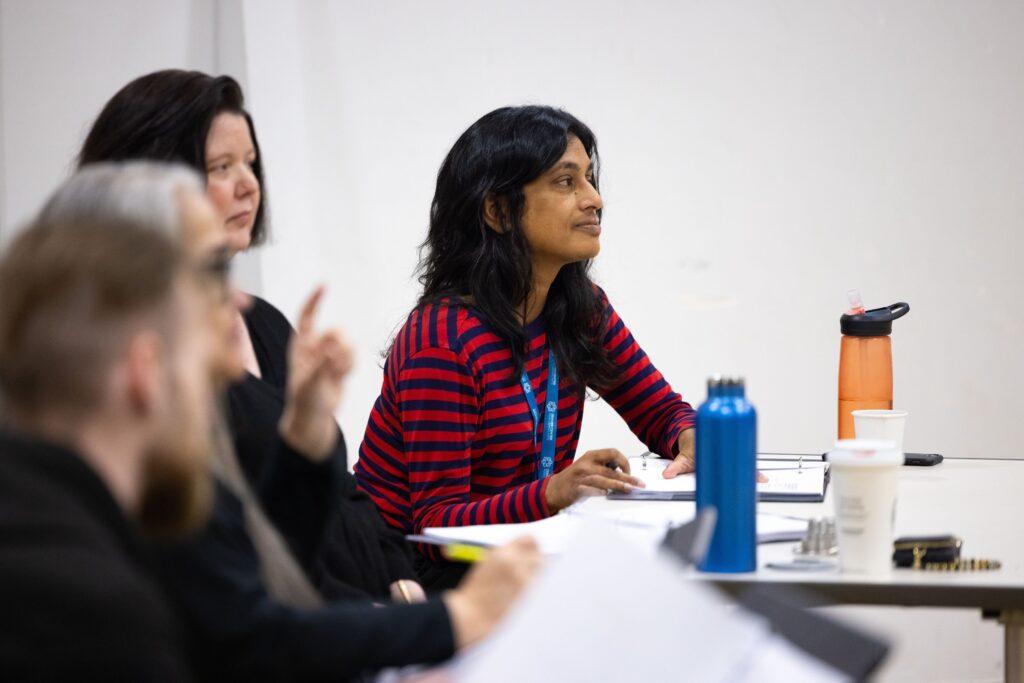
Collaborating with Spangler, Nina McConigley adapted her short stories, “Cowboys and East Indians”, which featured people in her real life, but she says rethinking them for the stage felt different to her. McConigley joked that writing “Cowboys and East Indians” felt like therapy. “Love Wyoming, but growing up there as a person of color or being different was tough.”
She adds that seeing it on stage felt separate from her own life. “I think maybe there were actors doing it. By the time we got to the actual first day of the summit, it didn't feel as much like my story anymore in a weird way,” said McConigley. When it came to the reading, with her mother sitting in the audience, McConigley said she couldn't look directly at her. “She wept through the play. And I think that kind of surprised me. I feel like she's read my story. She knows my story as well, but I think for her, seeing an actor portraying her, I guess really it was different than reading my books and essays and the things I've written before.”
Vara used AI in developing “Ghosts,” her original story, and she decided to include the AI as a character in the play. The essay examined how she grappled with grief over her sister's death, using AI.
Vara calls the essay a meta-critique of AI. “It acknowledges what AI can do to help a person express herself. And at the same time, it acknowledges the limitations and insufficiency of AI. The essay was already doing that. I felt on one level when I adapted the play, I think embodying the AI in a character on stage allowed me to press a little harder on that critique.”
During the rehearsals Vara changed the ending of her play. “I rewrote the ending to make very clear that this play is saying something about the insufficiency, finally, of AI to allow a person to express herself and the importance of finding one's own words or self-expression. So I think the play helped me sort of grapple more deeply, I think with some of the ethical and artistic questions around AI that I'd been grappling with somewhat in the essay.”
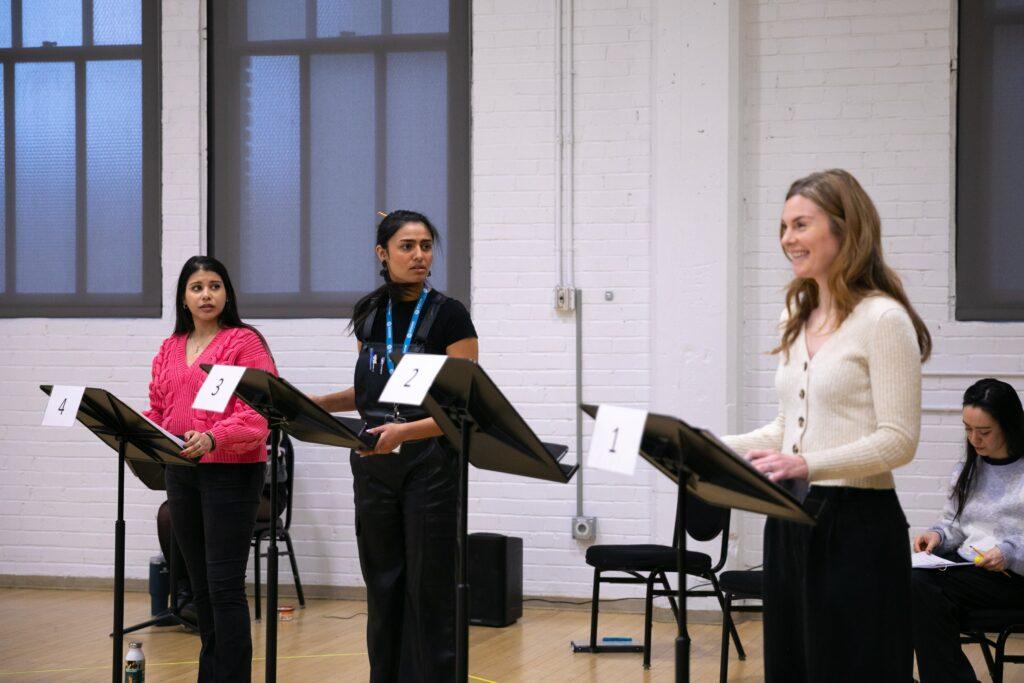
In recent years, American theater has been acknowledging and addressing inequities in the art form, while challenging itself to be more inclusive and expand the world of the theater.
For McConigley and Vara, these are not new conversations. “In our corner of the writing world, the corner that Nina and I are especially familiar with, we have been having those kinds of conversations too. It interests me because we've been here all along writing the stories that we're writing, writing with peers and in community communities that are quite diverse and feel inclusive. And yet the publishing industry has only recently started to just recognize these people are here as writers, as readers, as members of our communities, which is gratifying for me,” said Vara.
As a new playwright she observes that theater audiences tend to be disproportionately white and homogeneous in terms of class, which makes her more aware of these dynamics while watching her own play. ”And it makes me feel, in some ways, more sympathetic to the position of theaters who think of this as a challenge to grapple with. My sort of basic answer to the proposition that this is a challenge is to say, your underlying premise is wrong. There is no challenge.
“All of our stories are relevant stories. And yet, if it's the case that theater growing audiences aren't as diverse as the broader population, then I think there's a transition point at which that may feel kind of awkward. I think the thing that theater is that forward thinking theater is progressive theaters the Denver Center are trying to do is kind of address both of those sides of it at once. Because I think it is sort of like an incomplete answer to the question of how do you diversify theater or make theater more representative if you're bringing in playwrights that are more representative, but everybody in the audience still looks a certain homogeneous way.”
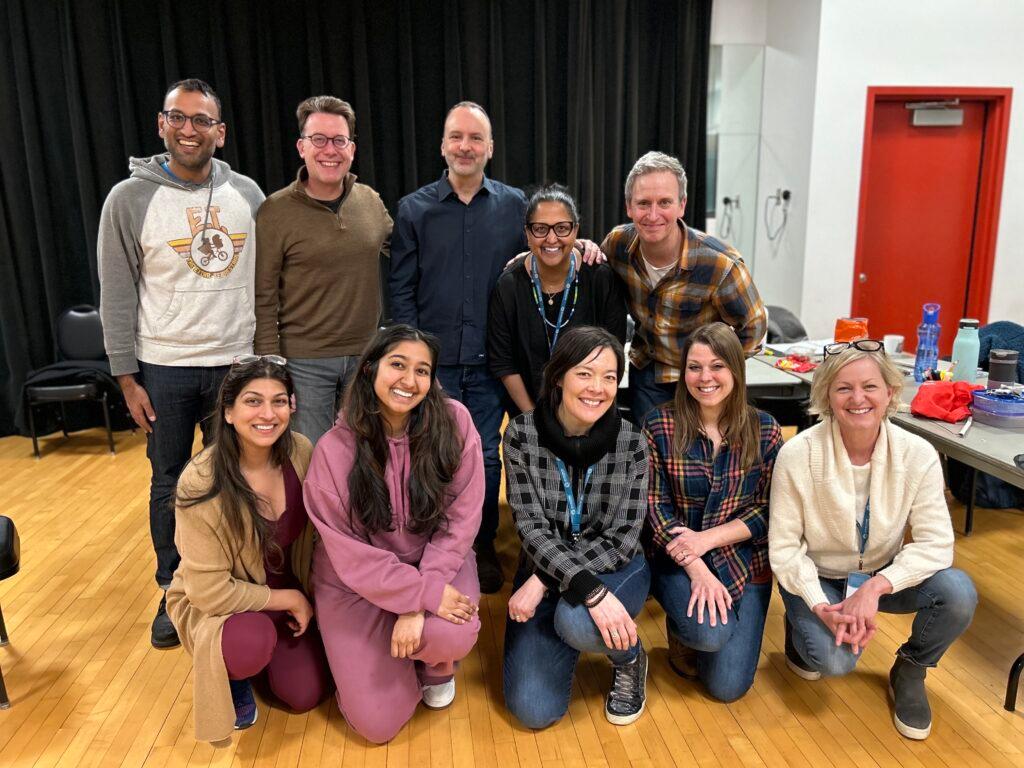
McConigley adds “ I hope it also speaks to the fact that I think our plays are about universal things. They're about grief, they're about family, they're about identity. And I think even if you're not South Asian, I think you can still connect with the themes in our play.” McConigley says she found the audience feedback interesting, “because there were a few people that said,’This play made me think about my mother.’ I'm pretty sure they weren't Indian people that were writing that. So it made me feel good that we're writing about things that everybody experiences.”
While the Denver Center Theater Company won't announce which plays from this year’s Colorado New Play Summit will move on to full productions until the 2025 gathering, both of these first-time playwrights say they plan to continue developing their scripts and continue writing plays as a new aspect to their writing careers.







